HCA Healthcare Inc
Latest HCA Healthcare Inc News and Updates
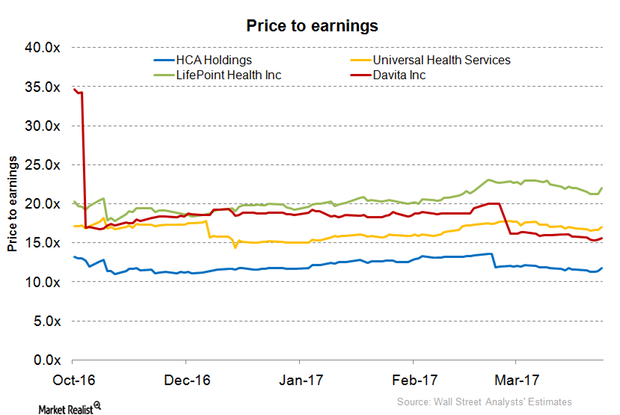
Which Hospital Stocks Are Expected to Benefit Most?
Trumpcare’s failure is considered to be a boon by hospital companies treating a significant portion of Medicaid members.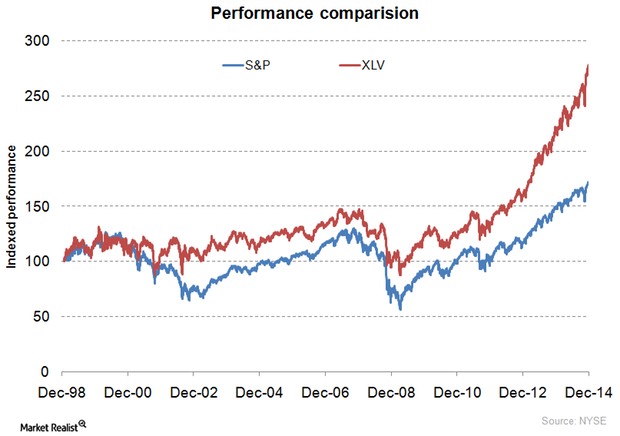
Must-read: Is the US hospital industry truly non-cyclical?
The hospital sector is widely considered a non-cyclical or defensive industry, meaning demand for hospital services doesn’t change with the economic cycle.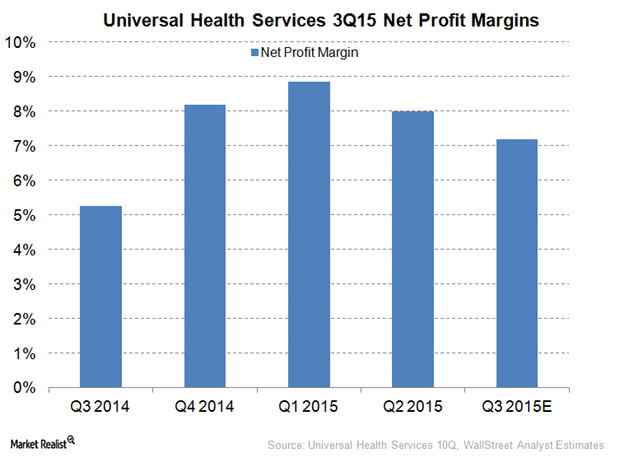
Universal Health Services’ Net Profit Margin Expected to Rise
Wall Street analysts expect that Universal Health Services (UHS) will report higher net profit margins in 3Q15 compared to margins in 3Q14.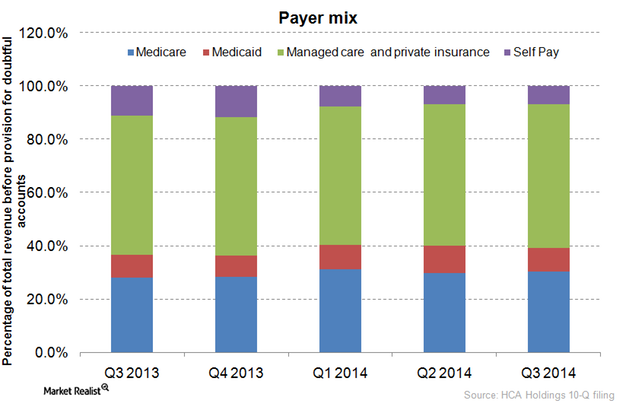
Exploring payer mix trends at HCA Holdings
In terms of payer mix, the percentage of HCA Holdings revenues contributed by Medicare rose from 28.0% in 3Q13 to 30.3% in 3Q14.Healthcare Overview: Assessing hospital companies’ capital expenditures
Capital projects in the hospital sector include purchasing new facilities, purchasing medical equipment, renovating and replacing existing hospitals, and investing in information systems infrastructure.Healthcare Understanding hospitals’ size, technology, and operating expenses
In the capital-intensive hospital industry, economies of scale offer a competitive advantage by spreading out the high fixed costs, providing for higher margins.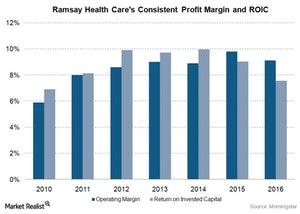
How Ramsay Health Care Became a Cost Leader
Ramsay Health Care is a market leader in private healthcare in Australia, treating almost 3 million patients each year.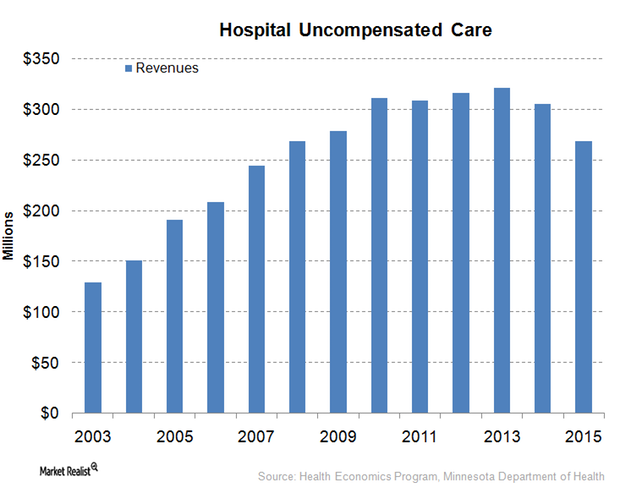
Hospital Industry Reacts to the Failed Healthcare Bill
On March 24, 2017, House Speaker Paul Ryan pulled back the American Health Care Act, also known as “Trumpcare,” before votes were cast.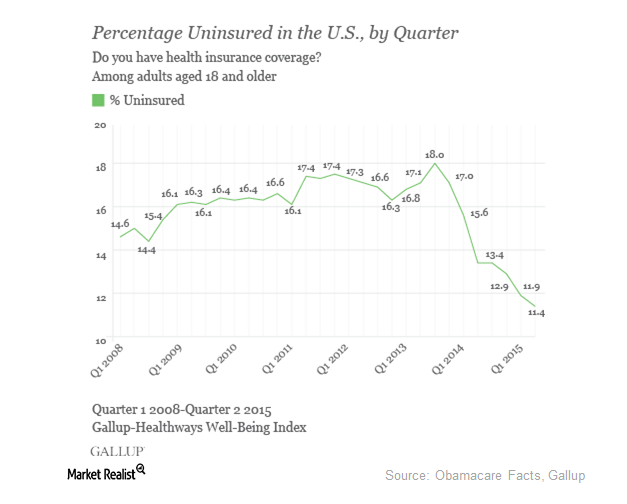
How Could Trump’s Presidency Affect Hospitals and Insurance?
The effects of repealing Obamacare Donald Trump is definitely not in favor of the Affordable Care Act, known as Obamacare. As he wants to repeal the act completely and replace it with another policy, the hospital sector fell on November 9, the day after the election. Trump believes that providing healthcare facilities to illegal immigrants costs […]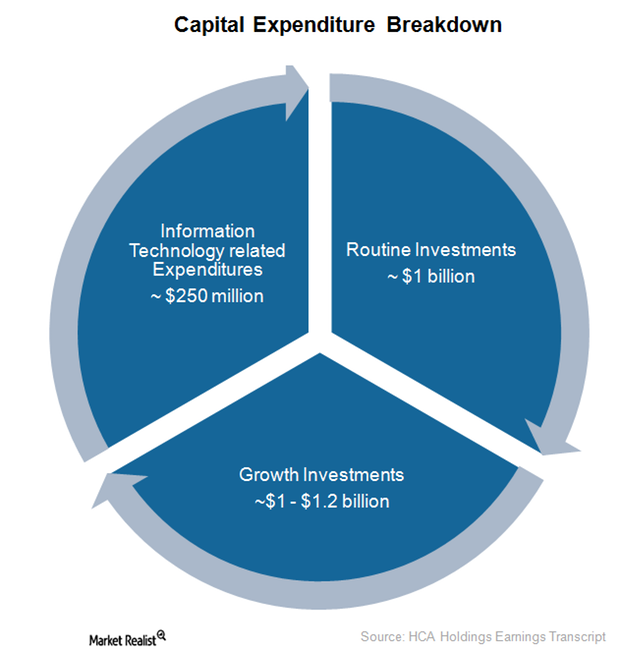
HCA Holdings’s Strong Capital Expenditure Strategy for 2016
In 2015, HCA Holdings deployed ~$2.4 billion in capital expenditure. It planned to increase capital spending to $2.7 billion in 2016.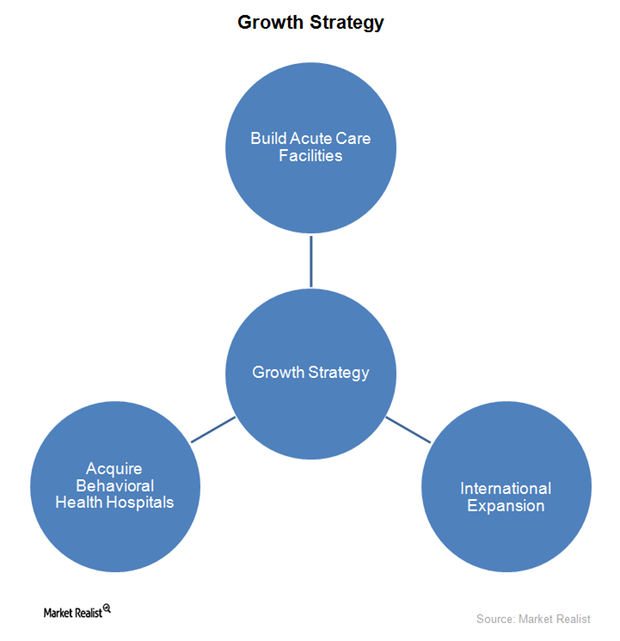
Universal Health Services Explores Growth Opportunities in 3Q15
In 3Q15, Universal Health Services was actively involved in exploring growth opportunities, both in its acute care as well as behavioral health business.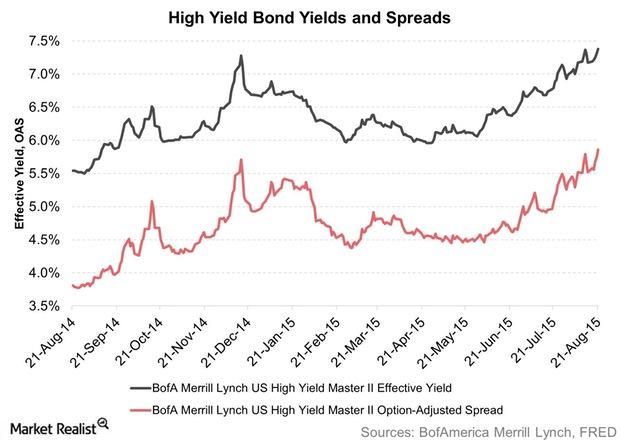
Widening High-Yield Bond Spreads: Opportunity or Threat?
Investors should note that high-yield bonds are risky securities to begin with. The add-on risk of widening spreads may not suit all types of investors.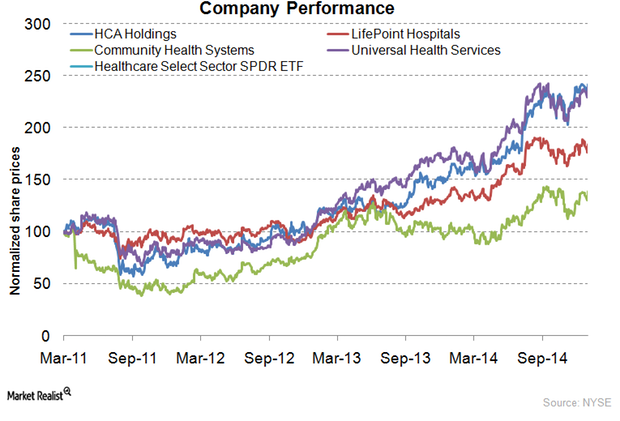
An overview of LifePoint Hospitals
With 67 hospitals, acquisitions continue to strengthen its position in rural markets, especially where LifePoint Hospitals is the sole healthcare provider.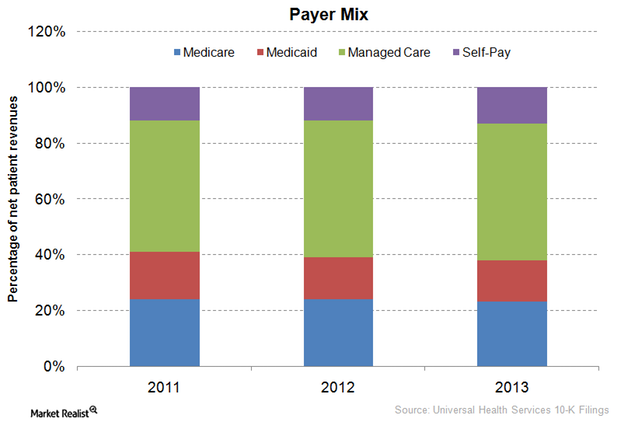
Universal Health Services’ payer mix differs from other companies’
Universal Health Services (UHS) has displayed a trend in payer mix from 2011 to 2013 that differs from other companies in the healthcare industry (XLV).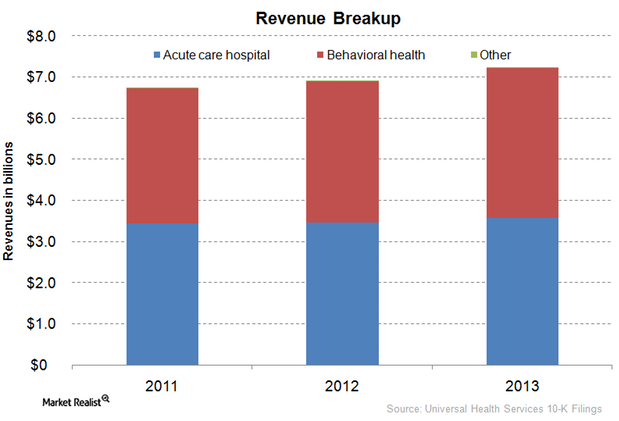
Exploring Universal Health Services’ revenue streams
Universal Health Services’ (UHS) net revenues increased by 4.6% from $6.96 billion in 2012 to $7.28 billion in 2013.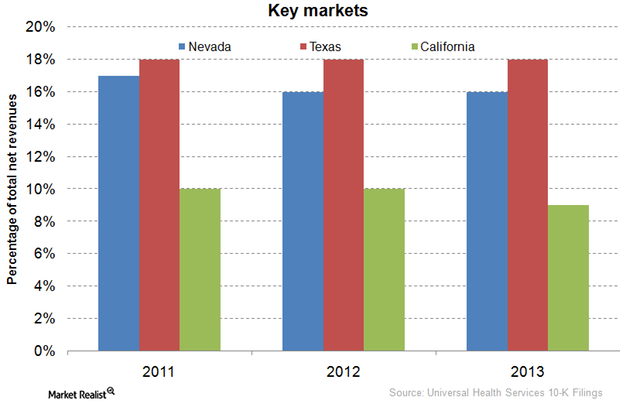
Exploring Universal Health Services’ major markets
Universal Health Services (UHS) earns more than 50% of its total revenues from the Texas, Nevada, Florida, California, and District of Columbia markets.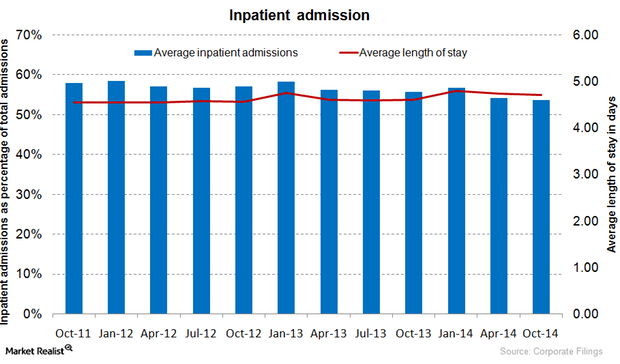
Analyzing the important current trends in hospital admissions
Hospital admissions are classified in two categories, inpatient admissions and outpatient admissions. Patients who are admitted overnight are inpatients.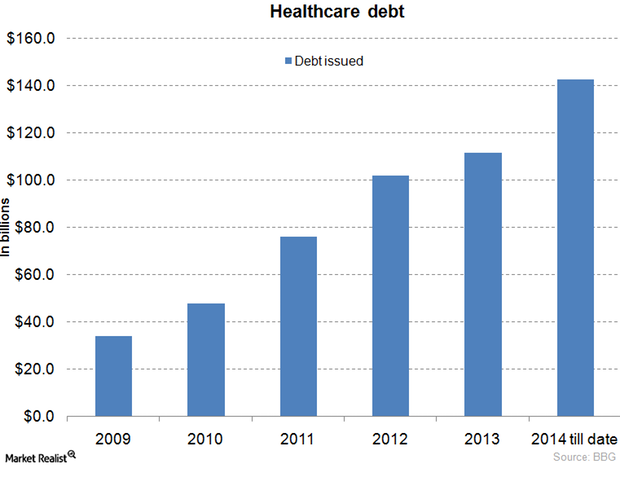
Why changes in interest rates affect the hospital industry
Economic changes in interest rates affect hospital companies, depending on the company’s cost-structure and expansion strategies.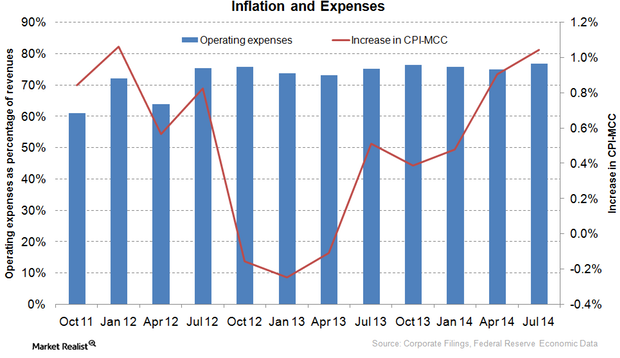
Gauging inflation’s effects on the hospital industry
Inflation closely relates to the performance of the healthcare industry (XLV), as it affects the rates that hospitals charge and the costs of medical care.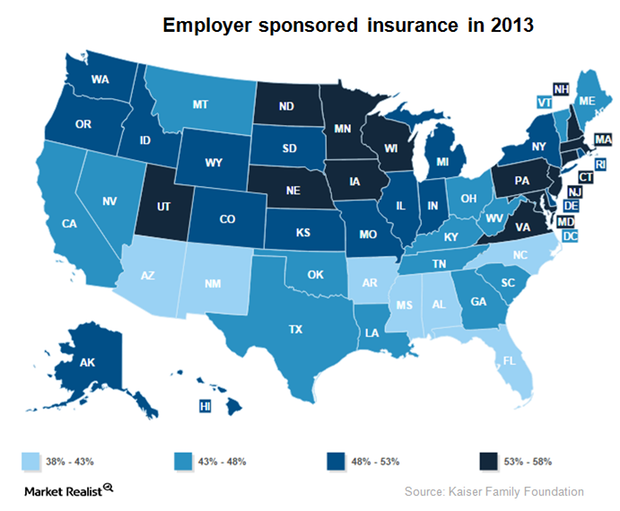
Why the unemployment rate affects hospital performance
The healthcare industry, represented by the Healthcare Select Sector SPDR, is affected by the unemployment rate. Income affects people’s health choices.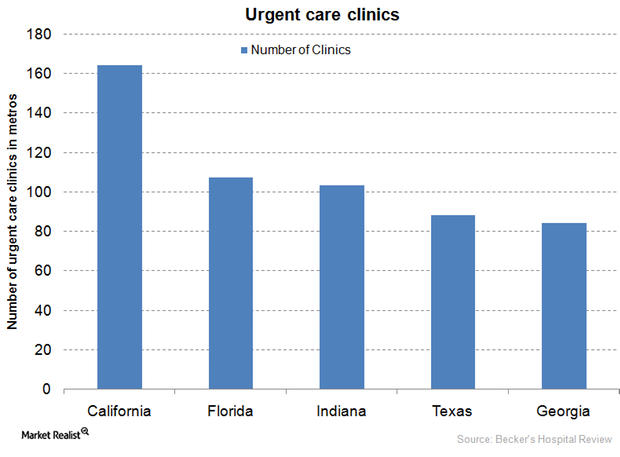
Standalone urgent care strategies
HCA Holdings is capturing market share in the $15 billion urgent care clinic market field by focusing on acquiring or opening standalone urgent care clinics.
Exploring HCA Holdings’ operating expenses
With solutions such as flexible staffing and optimal group purchasing provided by Parallon, HCA Holdings has better operating margins as compared to its peers.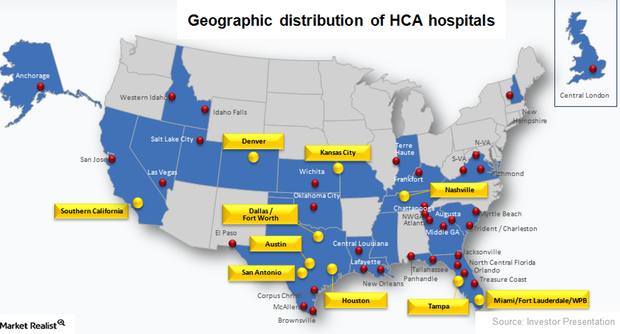
HCA’s diversification strategy
HCA Holdings’ diversified suite of services enables it to retain patients at their facilities, which bolsters revenues per patient.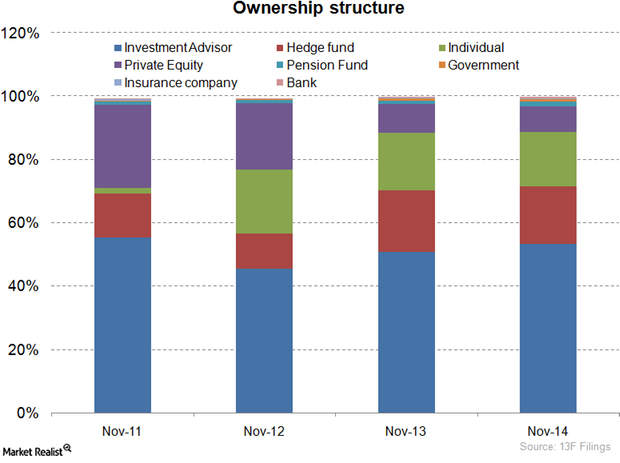
Exploring HCA’s ownership structure
Passive investments account for more than 56% of HCA Holdings’ total ownership structure.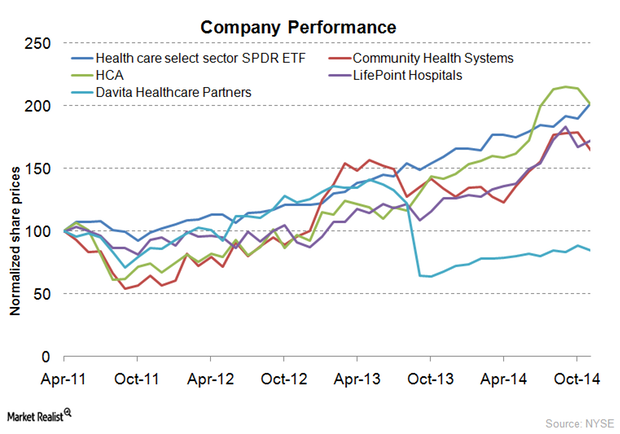
An overview of HCA Holdings
HCA Holdings went private in 1988 through a leveraged buyout, but it again became a public company in 1992.Earnings Report The benefits of Community Health Systems’ acquisition strategy
Community Health Systems acquires two to four hospitals each year as a part of its growth strategy. Reducing duplicate functions at the corporate level reduces overhead salary costs.Company & Industry Overviews Healthcare reform’s impact on Community Health Systems
The Patient Protection and Affordable Care Act (or ACA) and Health Care and Education Affordability Reconciliation Act are together called “Reform Legislation.”
